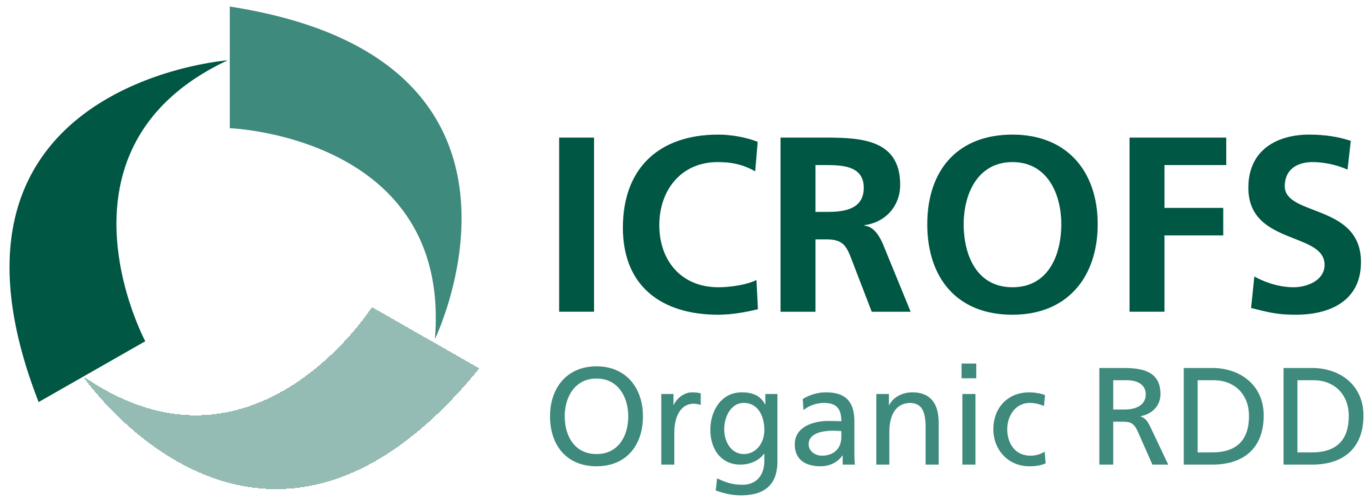Call for applications: The Organic RDD 9 programme has received 50 million DKK to Danish research in organic farming and food systems
ICROFS is pleased to announce new funding under the Organic RDD research and development programme in cooperation with GUDP.

DEADLINE FOR APPLICATIONS: May 2023 at 12:00 (CET) - All applications have been processed before 31 December 2023.
ICROFS’ research strategy 2022 is the foundation for the funding of Organic RDD9: > The current, not finally approved, edition of the research strategy can be found here (in Danish and English)
Planned focus areas for Organic RDD9
In the Organic RDD 9 programme it is possible to apply within all six focus areas, but ICROFS’ board especially prioritizes projects which are based on, or integrate, the focus areas:
- Biodiversity
- Climate and environment
- Health and welfare
including the challenges, which the organic farmers and organic companies are facing, in relation to:
- Circular bioeconomy
- The FUTURE organic consumer
- Organic farming – for a living
The projects may address selected topics within one or more focus areas, but should be based on a food system approach, be holistically oriented, and include the value chain and the users of the produced knowledge as well as the end-user (the consumer) to the extent that it is relevant.
The development of the organic sector must be sustainable for the farmers as well as for the society, and must meet the expectations of the consumers and society. Based on this, especially innovation, research, development, and demonstration are welcomed within the following areas, which are specified further in ICROFS’ research and development strategy 2022:
- Cropping and husbandry systems, initiatives and methods that support biodiversity in the farmed soil, on the farmed areas, as well as on the surrounding and connected areas in the farmed landscape. This includes investigation of interplay between biodiversity and soil fertility, e.g., in regenerative farming systems, production systems with high diversity and with combinations of plant- and livestock production, and in systems with agroforestry and perennial crops with high soil carbon sequestration.
- Quantification and valuation of the effect of organic farming on nature, biodiversity, and ecological functions. This includes documentation of pollination success and pest-regulation, improved soil fertility, -health, and – structure, as well as documentation for increased resilience in the production.
- The role and integration of livestock in a sustainable food system that provides healthy food products with nutritious value, without compromising the climate- and environmental impact of the production, or the health and welfare of the livestock.
- Organic farming- and production systems that improve healthy and resilient plants and plant-based foods, as well as the nutrition- and health quality of these foods.
- Maintenance and improvement of soil fertility, health, resilience, and carbon sequestration, hereunder the role of livestock and the interplay between microorganisms, and microorganisms and plants.
- Minimizing the negative impact on climate and environment from plant- and livestock production and adapting in relation to climate change. Resilient production systems and -technologies which increase the resource use efficiency and carbon sequestration, minimize greenhouse gas emissions, and reduce the loss of nutrients.
It is still possible to apply for funding either for projects with a business plan (type 1-projects) or project without a business plan, which are focusing exclusively on public goods and green sustainability effects (type 2-projects).
Info meetings concerning Organic RDD9
The info meetings have been held, but you can see it online if you missed it (in danish only): https://www.youtube.com/watch?v=OD6Z30RJxek
Receive feedback on your project idea before sending your application
You can receive feedback on your project idea by sending a short project outline to the ICROFS-secretariat.
The project outline has to be written into a template, which can be found here
The project outline must be sent via e-mail to icrofs@icrofs.org
The secretariat strives to have a maximum processing time of one week. You will receive feedback by phone.